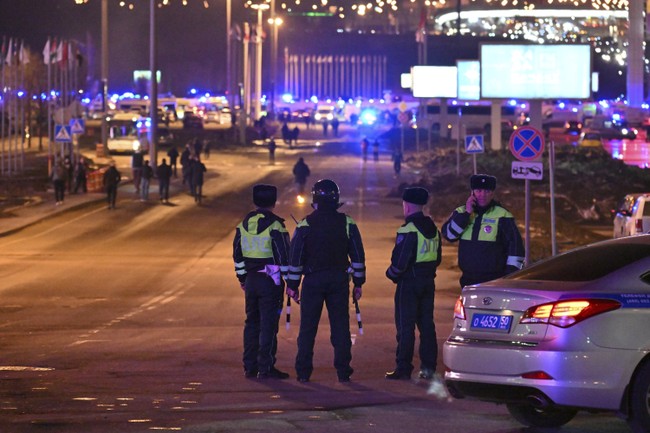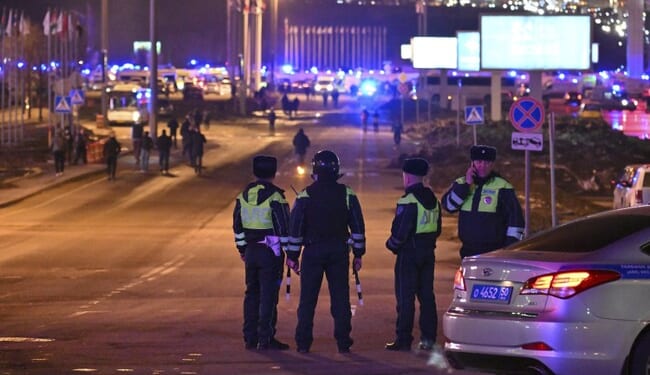
I can scarcely believe there’s a need to write this piece, but this is the pretty pass we’ve come to.
I offer here some advice that (one hopes) most PJ Media readers will find unnecessary: When stopped by the police, regardless of how unjustified you may find it, do as you are instructed. Lower your windows and unlock your doors when asked to do so, do not pull a gun, and, above all, do not shoot at them. If you do, it is a virtual certainty you will be shot, perhaps fatally.
Learning this too late was the late Dexter Reed, Jr., of Chicago, who I suspect was not a PJ Media reader. On March 21, at just after 6 p.m., Reed was stopped by Chicago P.D. officers in the 3800 block of West Ferdinand Street on the city’s West Side. Officers approached on both sides of Reed’s white SUV and ordered him to roll down his tinted windows. Reed lowered the driver’s side window, but then, in defiance of the officers’ lawful and clearly stated instructions, rolled the window back up.
The officers drew their weapons and continued ordering Reed to roll down the window and unlock his doors. Rather than comply, Reed fired a handgun through the passenger side window of his SUV, striking one of the five officers in the wrist. What followed was 40 seconds of gunfire and chaos, at the conclusion of which Reed lay dying on the pavement at the back of his car.
Given Reed’s decision to initiate a gunfight with five police officers surrounding him, his subsequent death should hardly come as a surprise, much less a cause for outrage, to any rational person. But this is Chicago, remember, where rationality is often abandoned when there is political advantage or money to be found.
On Tuesday, Chicago’s Civilian Office of Police Accountability released materials related to their investigation of the Reed shooting, including video from the officers’ body-worn cameras and from nearby security cameras. The release was greeted with outrage from Reed’s family and their attorneys. “Why were tactical officers jumping out of an unmarked police car with their guns drawn,” said attorney Steven Hart, “for a simple traffic violation of not wearing a seat belt?” He went on: “To us, to the family, that sounds disproportionate. It sounds pretextual. There is a problem with policing in this city when five tactical officers jump out of an unmarked police car, brandishing their weapons, for a young man that wasn’t wearing his seat belt.”
It has been widely reported (here, for example) that police fired a total of 96 rounds at Reed, and the public narrative is now congealing around this deliberately provocative detail. But, as was noted by Second City Cop on his website, COPA’s own publicly available documents reveal that the wounded officer didn’t fire at all, while the others fired 12, 16, 17, and 34 rounds, respectively, for a total of 79. Even that number may sound excessive to the uninformed, but it’s disgraceful that opinions are being shaped on the basis of erroneous reporting on the most elementary of facts.
It should be noted (though it wasn’t in the Chicago Tribune story on the case that ran on Tuesday) that Reed was on pretrial release for a felony gun charge stemming from an arrest last July. There was insufficient space in the paper for this detail, apparently, though they did find room for two photographs of Reed playing for his high school basketball team in 2017.
Were the officers aware of Reed’s pending case? We haven’t been told, but even if they were not, I make the educated speculation that Reed exhibited behavior that caught their attention and inspired their decision to stop him. If the seatbelt violation was a pretext, so be it. It is for people like Reed that Chicago P.D.’s tactical units were created. They work in the city’s most violent neighborhoods seeking out suspects most likely to be engaged in violent crime. (Second City Cop questions the extent to which the units are still guided by that mission.) Clearly, these officers suspected Reed of being such a person, as indeed he was.
There are those who have said Reed might not have recognized the officers as police, given that they were driving an unmarked car and dressed in plain clothes. This is rubbish. Chicago’s tactical teams drive Ford Explorers which, though unmarked, are readily recognizable and ubiquitous in the city’s grittier neighborhoods. Furthermore, the officers who stopped Reed had activated their car’s red and blue flashing lights and were wearing tactical vests clearly marked with the word “police.” Reed knew they were cops but chose to shoot at them anyway.
Now, as to the 79 shots fired by the officers: It’s ever so easy to watch the videos of the shooting, replaying them over and over, stopping here and there and magnifying the images to search for details. “Aha,” some say, “Reed didn’t have a gun when he came out of the car. They murdered him!”
It’s quite another matter to make such a determination with your wounded colleague bleeding on the ground nearby and the gunshots still echoing around you. In 1989, the U.S. Supreme Court held, in Graham v. Connor, that “[t]he calculus of reasonableness must embody allowance for the fact that police officers are often forced to make split-second judgments — in circumstances that are tense, uncertain, and rapidly evolving — about the amount of force that is necessary in a particular situation.”
Yes, Reed’s gun was found inside the car, but could any of the officers have discerned he was unarmed as he made his way from the driver’s seat to the back of the car? What’s more, as he exited the car, Reed didn’t raise his hands or give any indication he intended to surrender. Did he hope to escape on foot? The 1985 U.S. Supreme Court case of Tennessee v. Garner held that police may use deadly force “to prevent the escape and the officer has probable cause to believe that the suspect poses a significant threat of death or serious physical injury to the officer or others.” How much more of a significant threat can there be than a man who has already shot a police officer?
As in nearly all of these cases in which outrage at the police is whipped up by reporting of dubious honesty, Reed’s violent death was the predictable result of a series of poor decisions he himself made. Sadly, we’ll hear very little about those decisions in the media maelstrom yet to come.












